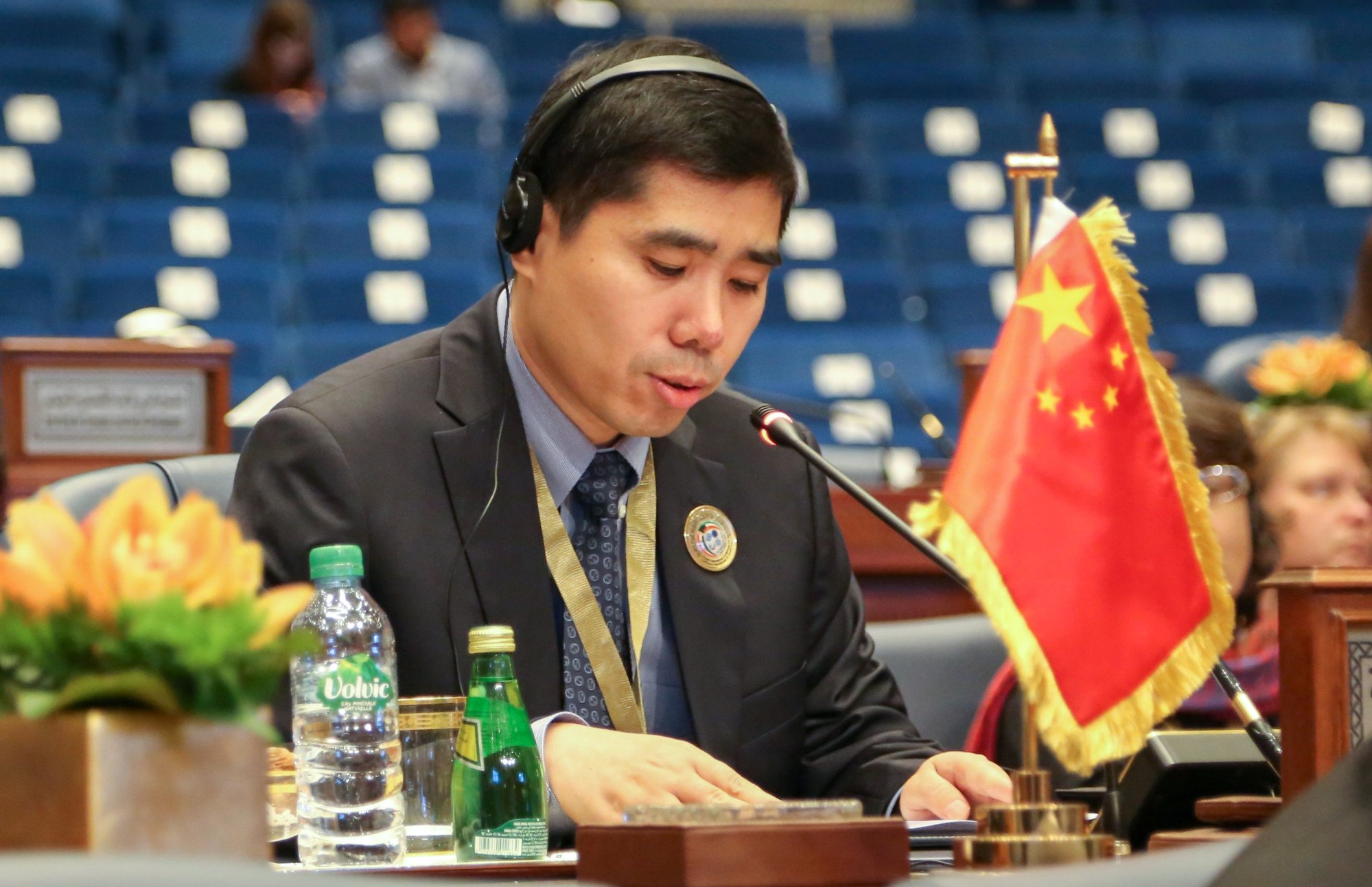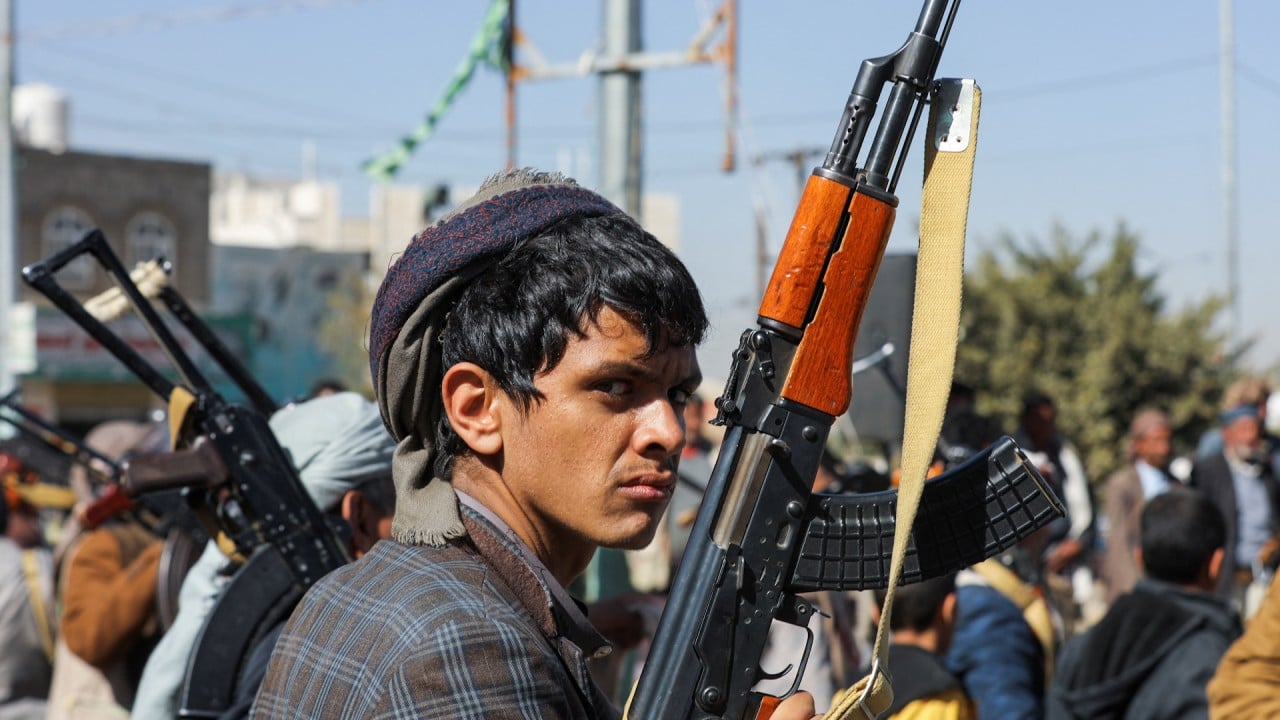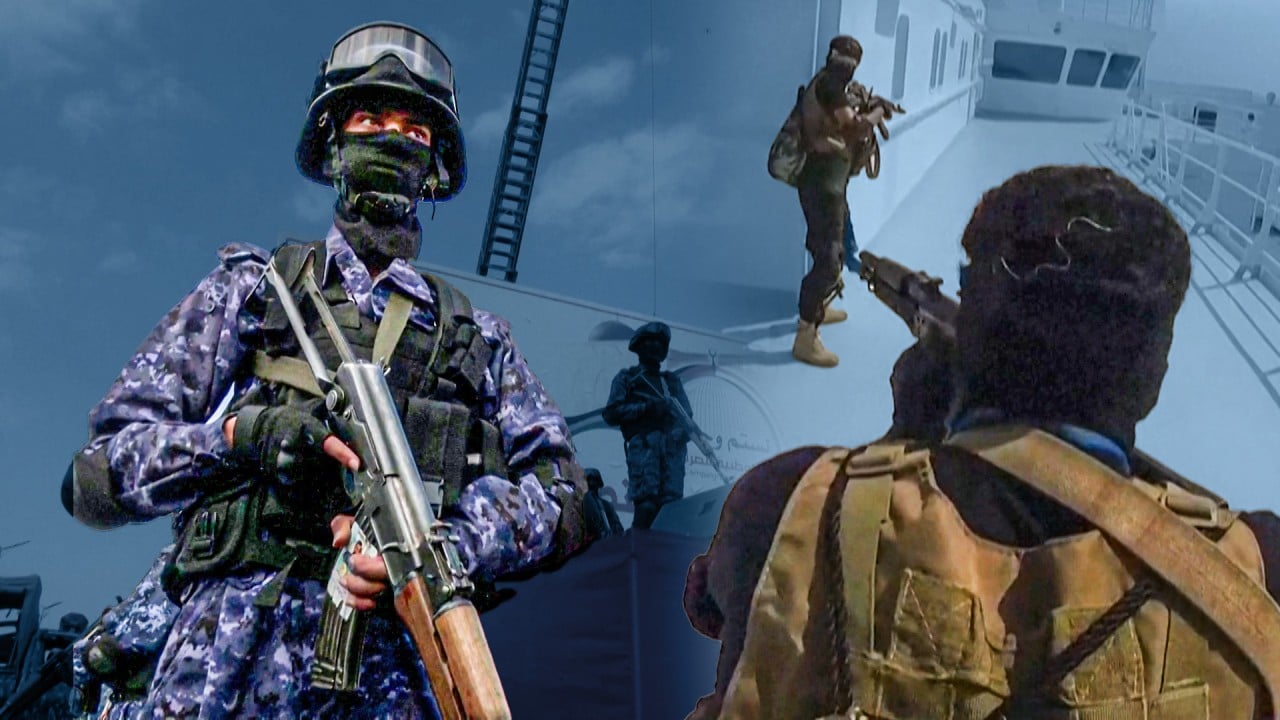
Why China’s Red Sea diplomatic mission is unlikely to stop Houthi shipping attacks
- Beijing continues to walk a fine line between helping to end the Red Sea attacks and maintaining its neutral position on the Israel-Gaza war
- Analysts note China’s reluctance to get involved, saying a recent diplomatic visit to the Middle East could be seen as ‘routine’
Last month, Wang Di, director general of the foreign ministry’s West Asian and North African affairs department, became the first Chinese diplomat since the crisis began to visit both Saudi Arabia and Oman as he met with Saudi, Omani and Yemeni officials.
In all his meetings, he had a similar message.
In Saudi capital Riyadh, Wang told Yemeni deputy foreign minister Mansour Ali Saeed Bajash that China attached great importance to “maintaining security and stability in the Red Sea region”, adding that Beijing supported Yemen’s “legitimate government”, but it would only pursue a “political settlement” on the anti-government Houthi militants.
While there, he made the same point to Saudi Arabian officials – that Beijing was willing to work with the country to “restore safety and stability” in the Red Sea.
Liu Xinlu, director of the school of Arabic studies at Beijing Foreign Studies University, said Wang’s visit showed that the Red Sea crisis was “closely related” to China’s interests.
Saudi Arabia and Oman are key players in the Houthi crisis. Riyadh has led an anti-Houthi coalition against the militants since 2015. The years-long war has triggered humanitarian crises in Yemen, but under Oman’s mediation, the two parties started ceasefire negotiations last year.

But Yin Gang, a research fellow at the Chinese Academy of Social Sciences, said that since Wang was not considered a senior official of the foreign ministry, his visit was more of a “routine” one, underscoring Beijing’s reluctance to get more involved in the crisis.
Beijing has long supported the exiled legitimate government of Yemen, but it also advocated a peaceful resolution to the Yemen crisis, avoiding a harsh stance towards the Houthi militants.
It has sought to play the role of peacemaker in the Yemen conflict at the diplomatic level as its influence in the Middle East grows. Last year, Shao Zheng, charge d’affaires of the Chinese embassy in Yemen, promoted the idea of China as a mediator after it brokered a peace deal between Iran and Saudi Arabia.
But in terms of the Red Sea, Yin said: “China has no ability nor motivation to be further involved.”
He said Beijing would continue its independent strategy, which meant steering clear of any approaches from Tehran or the Houthis, or even Washington.
“Except when China’s vital interests are compromised, such as a widespread attack on Chinese carriers, China will maintain a low-profile stance.”

Liu predicted higher-profile diplomatic exchanges related to the Gaza war and Red Sea issues may be on their way, with Beijing still looking to find political solutions to the Palestine-Israel conflict.
“China’s position is mostly one of distancing itself from Western countries. Chinese diplomats have been carefully commenting on the events, but in Beijing’s narratives, the rise of attacks is a consequence of Israel’s war in Gaza,” said Jean-Loup Samaan, a senior research fellow at the National University of Singapore’s Middle East Institute.
China, meanwhile, has not announced any force deployment to help safeguard the shipping routes, despite having a strong military presence in the region.
On February 21, China dispatched the 46th fleet of the Chinese PLA Navy to secure the Gulf of Aden and the waters off Somalia, which connect the Red Sea and the Arabian Sea. It replaces the 45th fleet.
Without mentioning the Red Sea crisis, the PLA Navy said the 46th fleet includes a guided-missile destroyer, a missile frigate and a comprehensive replenishment vessel.
The deployment includes more than 700 officers and soldiers, dozens of special forces personnel and two helicopters.
Despite China not joining the US-led operations in the area, Yin said the heavy presence of the 46th fleet sent a clear signal to Iran and Houthi militants that China would protect shipping safety there.
China’s defence ministry, however, denied the dispatched fleet is related to the Red Sea crisis, calling it a “regular escort operation” on February 29.
“The fact that the Chinese naval fleet went to the Gulf of Aden and Somali waters to carry out regular escort operations has nothing to do with the current regional situation,” ministry spokesman Zhang Xiaogang said, referring to the Red Sea situation.



